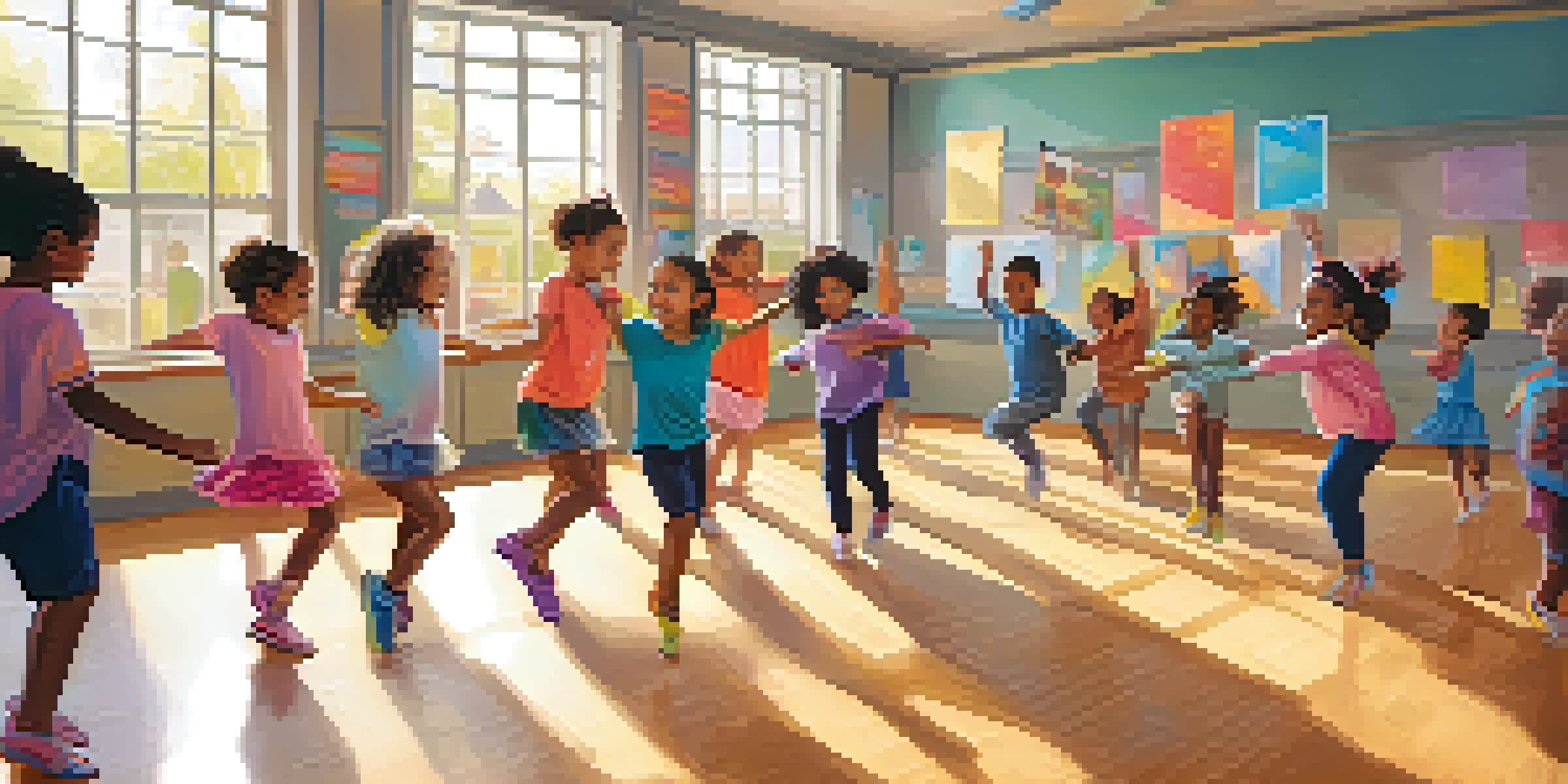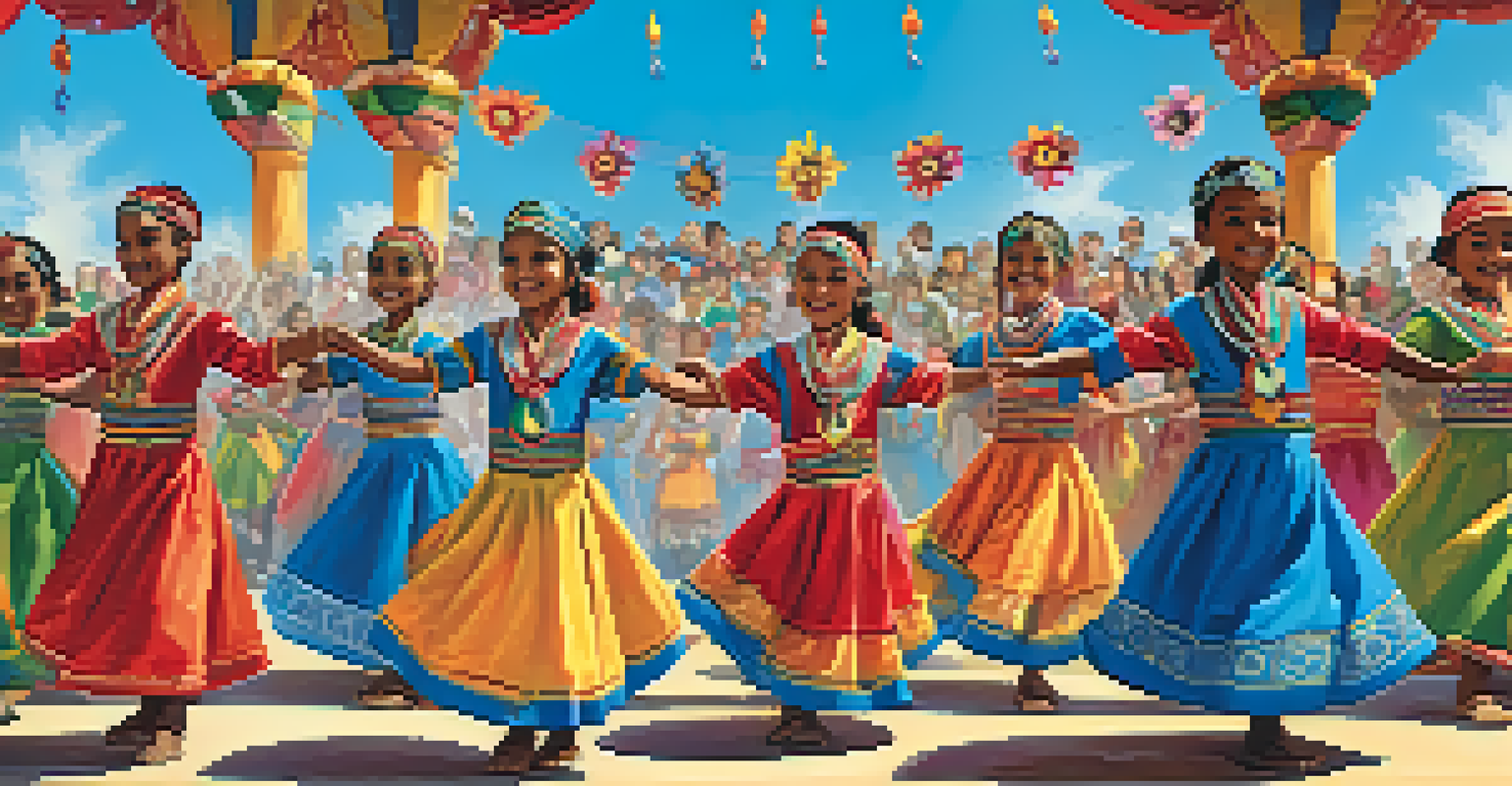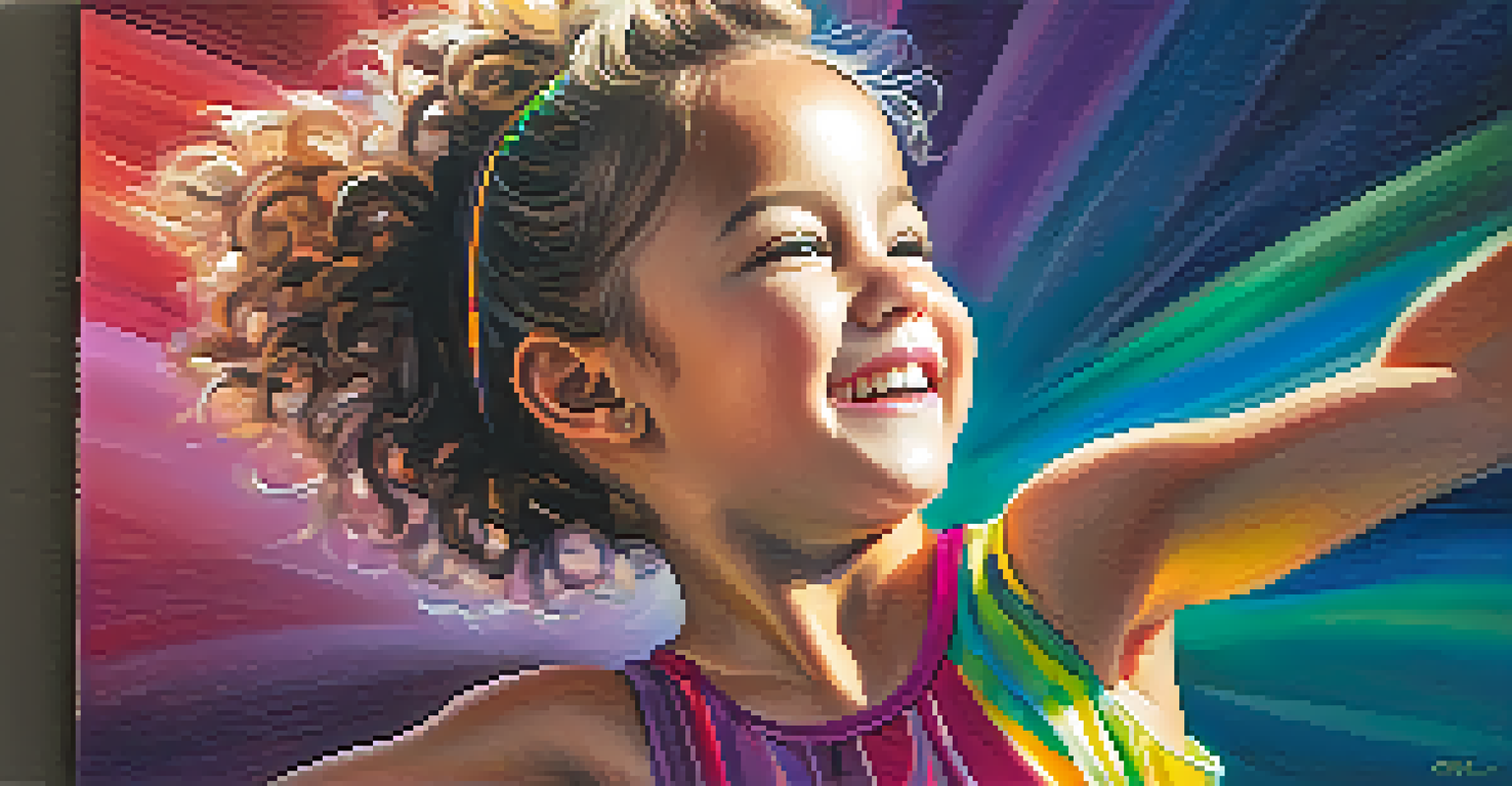Dance as a Tool for Social Skills Development in Young Learners

The Importance of Social Skills in Early Learning
Social skills are crucial for young learners as they navigate friendships and group dynamics. These skills, such as communication, empathy, and cooperation, lay the foundation for future interactions. As children engage with their peers, they learn how to express themselves and understand others better, which is vital in their developmental journey.
Dance is the hidden language of the soul.
In the classroom, social skills can influence a child’s confidence and willingness to participate. When children feel comfortable interacting with others, they are more likely to share ideas and collaborate on projects. This environment fosters a sense of belonging, which is essential for emotional well-being.
Moreover, strong social skills can positively impact academic performance. Children who can work well with others tend to engage more deeply in their learning experiences. Thus, developing these skills early on is not just beneficial; it is essential for holistic growth.
How Dance Encourages Interaction Among Children
Dance naturally promotes interaction as it often requires teamwork and communication. Whether in partner work or group choreography, children must negotiate roles and share ideas, which builds social connections. This collaborative effort fosters a supportive environment where children can express themselves freely.

In dance, movements can convey emotions and ideas without the need for words. This non-verbal communication can help children who may struggle with traditional forms of interaction. By engaging through movement, they can connect with peers in a unique way, enhancing their social understanding.
Social Skills are Essential for Growth
Developing social skills like communication and empathy early on is vital for children's emotional well-being and academic success.
Additionally, dance classes create a structured setting where young learners can practice and refine their social skills. As they engage in activities like improvisation or group performances, they learn to read body language and respond to cues, making them more attentive and responsive in social situations.
Building Confidence Through Dance
Participating in dance can significantly boost a child's self-esteem. As they learn new moves and techniques, they gain a sense of accomplishment that translates into confidence in social settings. This newfound self-assurance encourages them to engage more readily with their peers.
The only way to grow is to embrace the unknown.
Performing in front of an audience, whether family or classmates, also teaches children to overcome fears and embrace vulnerability. Each performance becomes an opportunity for them to shine, which reinforces their belief in their abilities. This experience can be particularly empowering for children who may feel shy or anxious.
Moreover, dance encourages a growth mindset, where children learn that practice and persistence lead to improvement. This mindset helps them understand that social skills, like dance skills, can be developed over time, making them more resilient in the face of challenges.
Fostering Empathy Through Dance
Dance allows children to express and understand a range of emotions, fostering empathy. As they interpret different themes and stories through movement, they learn to connect with the feelings of others. This emotional intelligence is a crucial component of effective social interactions.
In group dances, children must consider how their movements affect their partners and the overall performance. This awareness cultivates a sense of responsibility towards others, reinforcing the idea that collaboration requires understanding and respect. Through this process, children can better appreciate diverse perspectives.
Dance Boosts Confidence and Empathy
Through dance, children enhance their self-esteem and learn to empathize with others, fostering deeper social connections.
Additionally, sharing personal stories through dance can create a deeper bond between participants. When children express their experiences or feelings, it opens up dialogue and encourages others to do the same. This exchange enhances mutual understanding and strengthens social ties among peers.
Dance as a Cultural Connector
Dance is a universal language that transcends cultural boundaries, making it an excellent tool for social skills development. By exploring various dance styles from different cultures, children can learn about diversity and inclusion. This exposure broadens their worldview and fosters appreciation for different backgrounds.
Participating in multicultural dance activities encourages children to embrace differences and celebrate similarities. They learn to work together despite cultural variations, fostering a sense of unity and respect. This experience can be particularly valuable in diverse classrooms where inclusivity is paramount.
Furthermore, these cultural exchanges can spark conversations about traditions and values, enriching children's understanding of the world around them. As they engage with peers from different cultures, they develop crucial social skills that prepare them for a global society.
Creating Safe Spaces for Expression
Dance classes often provide a safe and supportive environment for children to express themselves. In these spaces, they can explore their creativity without fear of judgment. This freedom encourages them to take risks and express emotions, which is vital for social skills development.
When children feel safe to express themselves, they are more likely to engage with their peers openly. This sense of security fosters trust and facilitates deeper connections, allowing friendships to flourish. Such environments can be particularly beneficial for children who may struggle with shyness or anxiety.
Cultural Dance Promotes Inclusion
Exploring diverse dance styles helps children appreciate different cultures, encouraging unity and respect in diverse environments.
Moreover, instructors play a pivotal role in establishing this supportive atmosphere. By encouraging positive reinforcement and constructive feedback, teachers help children build their confidence and social abilities. This nurturing approach helps create a community where every child feels valued and included.
Conclusion: Embracing Dance for Social Growth
In conclusion, dance serves as an effective tool for developing social skills in young learners. Through movement, children engage with their peers, build confidence, and foster empathy. These experiences not only enhance their social interactions but also contribute to their overall emotional and academic growth.
As educators and parents, encouraging participation in dance can lead to lifelong benefits. By integrating dance into educational programs, we provide children with opportunities to develop essential skills that will serve them well beyond the dance floor. This investment in their social development pays dividends in their future relationships and collaborations.

Ultimately, embracing dance as a means of social skills development enriches the learning experience for children. It provides them with the tools they need to navigate the complexities of social interactions, preparing them for a successful and fulfilling life.